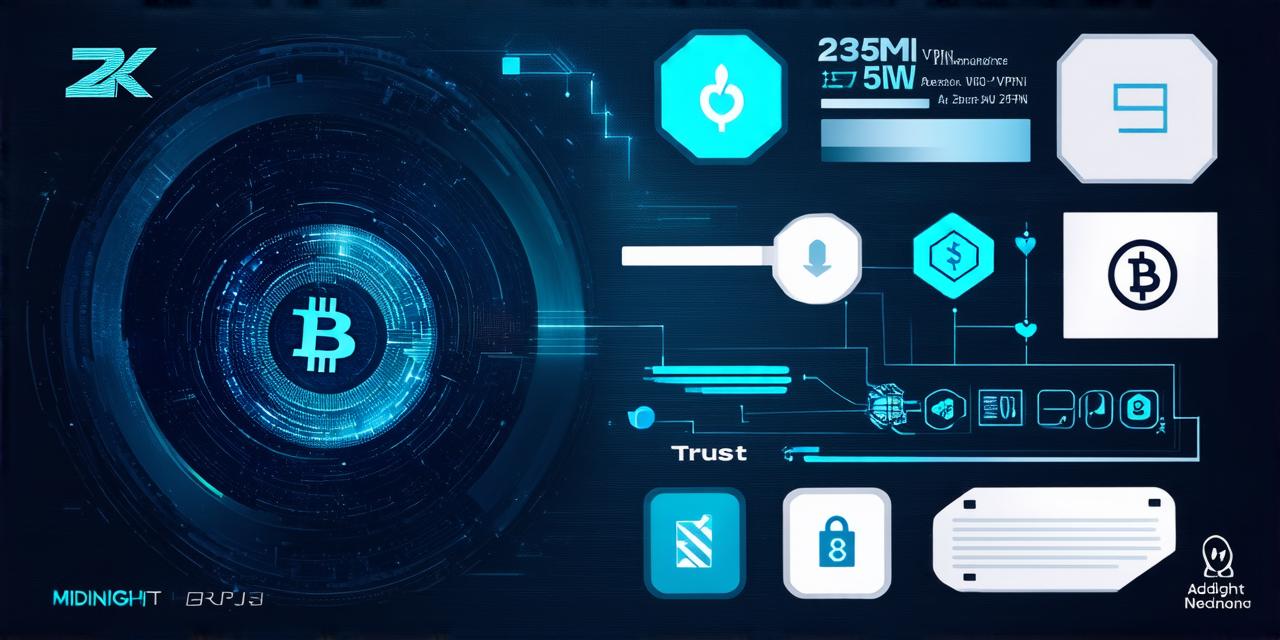In recent years, cryptocurrencies have gained immense popularity worldwide, and their usage is spreading rapidly. However, while cryptocurrencies offer numerous benefits, they also pose a significant risk to users’ privacy and security. This is where virtual private networks (VPNs) come into the picture. VPNs are software applications that encrypt a user’s internet traffic, making it difficult for hackers and other malicious actors to intercept and monitor their online activities.

Are VPNs Allowed When Dealing With Cryptocurrencies?
The answer to this question is yes, VPNs are allowed when dealing with cryptocurrencies. In fact, many cryptocurrency exchanges require their users to use VPNs when accessing their platforms. This is because VPNs can help protect users’ privacy and security, which are crucial factors in the world of cryptocurrencies.
One of the primary benefits of using a VPN when dealing with cryptocurrencies is that it encrypts a user’s internet traffic. This means that any data transmitted between the user’s device and the cryptocurrency exchange or wallet is scrambled and unreadable to anyone who intercepts it. This makes it much more difficult for hackers or other malicious actors to steal users’ private keys, which are essential for accessing their cryptocurrencies.
Another advantage of using a VPN when dealing with cryptocurrencies is that it can help users bypass geographical restrictions. Many countries have imposed strict regulations on the use of cryptocurrencies or have banned them outright. By using a VPN, users can mask their IP address and appear as if they are accessing the internet from another country where cryptocurrency usage is permitted. This allows them to access cryptocurrency exchanges and wallets that would otherwise be inaccessible to them.
In addition to these benefits, VPNs can also help protect users’ anonymity when dealing with cryptocurrencies. Cryptocurrency transactions are recorded on a public ledger known as the blockchain, which is visible to anyone who wants to see it. By using a VPN, users can make their online activities more difficult to trace back to them, which can help protect their privacy and anonymity when dealing with cryptocurrencies.
Real-Life Examples of How VPNs Can Help With Cryptocurrencies
One real-life example of how VPNs can help with cryptocurrencies is the case of a user who lives in a country where cryptocurrency usage is heavily restricted. In this scenario, the user would need to use a VPN to mask their IP address and appear as if they are accessing the internet from another country where cryptocurrency usage is permitted. This would allow them to access cryptocurrency exchanges and wallets that would otherwise be inaccessible to them.
Another example is a user who wants to protect their privacy when dealing with cryptocurrencies. In this scenario, the user could use a VPN to encrypt their internet traffic and make it more difficult for hackers or other malicious actors to intercept and steal their private keys. This would help protect the user’s cryptocurrencies from potential theft.
Comparing VPNs to Other Security Measures
While VPNs are an effective way to protect users’ privacy and security when dealing with cryptocurrencies, they should not be the only security measure in place. In addition to using a VPN, users should also take other steps to secure their cryptocurrencies, such as using strong passwords, enabling two-factor authentication, and storing their private keys in a secure location.
It is also important to note that while VPNs can help protect users’ privacy and security when dealing with cryptocurrencies, they are not foolproof. VPNs can still be compromised by hackers or other malicious actors if they are not properly configured or maintained. Therefore, users should always use a reputable VPN provider and regularly update their software to ensure that it is secure and up-to-date.
FAQs on VPNs and Cryptocurrencies
Q: Is it legal to use VPNs when dealing with cryptocurrencies?
A: Yes, it is legal to use VPNs when dealing with cryptocurrencies in most countries.
